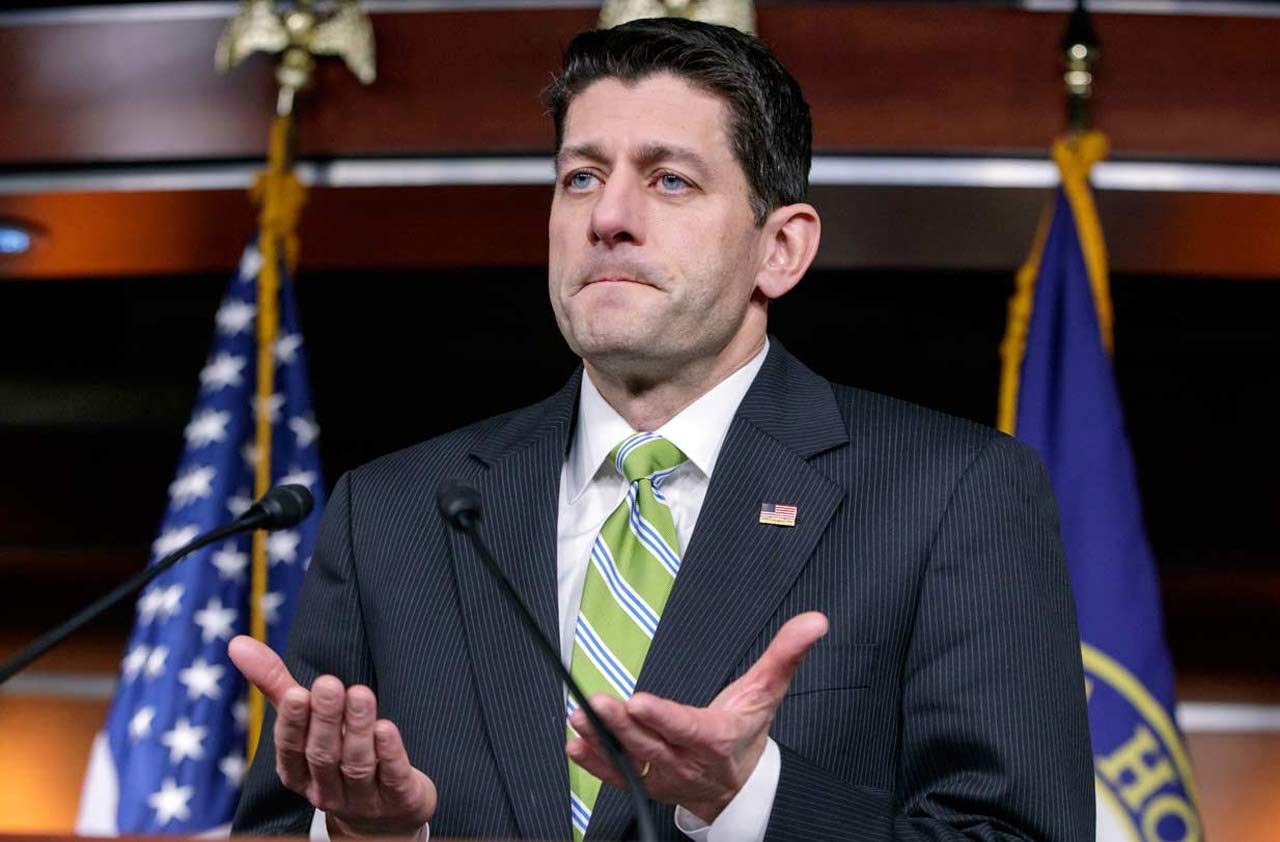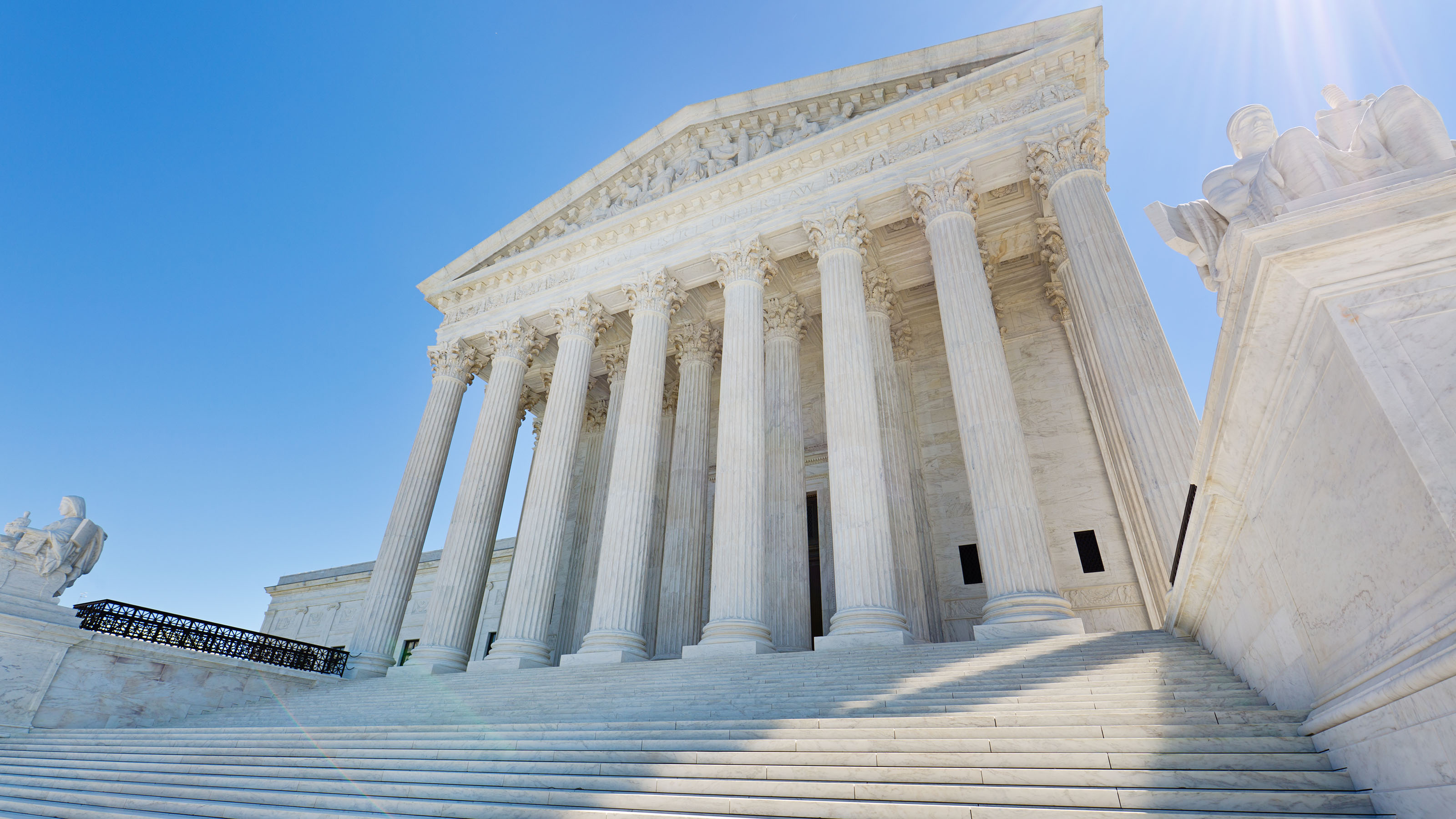What's Next For Health Care, Trump's Agenda?
Don't be surprised if the president's other top priorities get pushed back to 2018 and beyond.


Profit and prosper with the best of Kiplinger's advice on investing, taxes, retirement, personal finance and much more. Delivered daily. Enter your email in the box and click Sign Me Up.
You are now subscribed
Your newsletter sign-up was successful
Want to add more newsletters?

Delivered daily
Kiplinger Today
Profit and prosper with the best of Kiplinger's advice on investing, taxes, retirement, personal finance and much more delivered daily. Smart money moves start here.

Sent five days a week
Kiplinger A Step Ahead
Get practical help to make better financial decisions in your everyday life, from spending to savings on top deals.

Delivered daily
Kiplinger Closing Bell
Get today's biggest financial and investing headlines delivered to your inbox every day the U.S. stock market is open.

Sent twice a week
Kiplinger Adviser Intel
Financial pros across the country share best practices and fresh tactics to preserve and grow your wealth.

Delivered weekly
Kiplinger Tax Tips
Trim your federal and state tax bills with practical tax-planning and tax-cutting strategies.

Sent twice a week
Kiplinger Retirement Tips
Your twice-a-week guide to planning and enjoying a financially secure and richly rewarding retirement

Sent bimonthly.
Kiplinger Adviser Angle
Insights for advisers, wealth managers and other financial professionals.

Sent twice a week
Kiplinger Investing Weekly
Your twice-a-week roundup of promising stocks, funds, companies and industries you should consider, ones you should avoid, and why.

Sent weekly for six weeks
Kiplinger Invest for Retirement
Your step-by-step six-part series on how to invest for retirement, from devising a successful strategy to exactly which investments to choose.
Editor’s note: The following is a bonus edition of Kiplinger Alerts, bringing you the latest developments from Washington on congressional Republicans’ health care reform bill. Kiplinger editors are reporting live from Capitol Hill on House GOP leaders’ efforts to secure enough support to pass the measure, and their ultimate decision to cancel a planned Friday afternoon vote.
SEE ALSO:
For more valuable insights like this, sign up for Kiplinger Alerts – free 30-day trial!
p>
From just $107.88 $24.99 for Kiplinger Personal Finance
Become a smarter, better informed investor. Subscribe from just $107.88 $24.99, plus get up to 4 Special Issues

Sign up for Kiplinger’s Free Newsletters
Profit and prosper with the best of expert advice on investing, taxes, retirement, personal finance and more - straight to your e-mail.
Profit and prosper with the best of expert advice - straight to your e-mail.
The odds of repealing and replacing Obamacare look even worse after House Republicans couldn't unite around replacement legislation and the bill had to be pulled before today's vote.
The failure represents a major setback for President Trump and for House Speaker Paul Ryan (R-Wis.).
It also suggests Republicans in Congress are more concerned about facing unhappy voters next year than they are an angry president of their own party.
It isn't clear when or if the Republican majority will revisit health care legislation or whether they'll move on to tax reform or other major parts of Trump's first-year agenda.
The Kiplinger Letter forecast from earlier this month remains unchanged: Don't be surprised if his top three priorities for 2017 – ditching Obamacare, passing comprehensive tax reform and putting in place a $1-trillion infrastructure bill – get pushed back until 2018, maybe longer.
On health care, it wasn't for lack of trying. The White House and the GOP leadership lobbied aggressively in the lead-up to the vote, hoping to persuade the House Freedom Caucus, an influential group of conservative Republicans, to support the American Health Care Act. In the end, the arm-twisting efforts fell short.
"Here's the problem: We're having a hard time making the transition from being an opposition party to being truly in the majority in Washington, D.C.," said Rep. Mike Coffman (R-Colo.). "It used to be an opposition party. There's a comfort in being against everything."
The failure underscores the biggest obstacle to any GOP health care reform effort: The party is simply too divided to pass legislation that pleases all its members. After this week, it's unclear if conservatives will settle for anything less than a full repeal of Obamacare. Moreover, any changes made to placate the conservatives will further alienate moderate Republicans and vice versa.
The problem is even worse in the Senate. Many GOP lawmakers hail from states that benefited from Obamacare's expanded coverage. They fear voters will rebel if they pass a bill that could result in 24 million people losing their health insurance over the next decade, as the Congressional Budget Office estimated. Moderate senators, including Susan Collins (Maine) and Lisa Murkowski (Alaska), also object to any efforts to defund Planned Parenthood, one of the few moves House Republicans have to attract more conservative votes.
Rep. Tom Reed (R-N.Y.) refused to point fingers, saying the members must do some serious soul searching regarding the direction the House Republican Conference wants to take. "I'm always the optimist. I have high regard for President Trump and the opportunity he has for disrupting Washington. Maybe this will be a learning moment where we can evolve."
We probably haven't heard the last on this issue, despite President Trump's pledge to move on if Congress failed to pass the AHCA. Almost every big-ticket item on the GOP's legislative agenda, including tax reform and infrastructure, depends on the budgetary savings that would result from repealing Obamacare. In short, if Republicans can't do health care, it will be hard for them to do much of anything.
"Ultimately, this all kind of comes down to a choice," Ryan said. "Are all of us willing to give a little to get something done? Are we willing to say 'yes' to the good, to the very good, even if it's not the perfect? If we're willing to do that, we still have such an incredible opportunity in front of us."
But they have a very short window of opportunity to accomplish these things before facing the voters in 2018. Midterm elections are almost always hard on the party in power, but Republicans up for re-election next year may also have to distance themselves from an unpopular president and from health care, an issue that seems to burn whichever party touches it.
SEE ALSO:
For more valuable insights like this, sign up for Kiplinger Alerts – free 30-day trial!
p>
The Democrats discovered this when they tackled health care reform under President Clinton and President Obama. Now, it's the Republicans' turn.
Sean Lengell contributed to this report.
Profit and prosper with the best of Kiplinger's advice on investing, taxes, retirement, personal finance and much more. Delivered daily. Enter your email in the box and click Sign Me Up.

-
 Dow Adds 1,206 Points to Top 50,000: Stock Market Today
Dow Adds 1,206 Points to Top 50,000: Stock Market TodayThe S&P 500 and Nasdaq also had strong finishes to a volatile week, with beaten-down tech stocks outperforming.
-
 Ask the Tax Editor: Federal Income Tax Deductions
Ask the Tax Editor: Federal Income Tax DeductionsAsk the Editor In this week's Ask the Editor Q&A, Joy Taylor answers questions on federal income tax deductions
-
 States With No-Fault Car Insurance Laws (and How No-Fault Car Insurance Works)
States With No-Fault Car Insurance Laws (and How No-Fault Car Insurance Works)A breakdown of the confusing rules around no-fault car insurance in every state where it exists.
-
 Is a New $25,000 Health Care Tax Deduction Coming in 2026?
Is a New $25,000 Health Care Tax Deduction Coming in 2026?Tax Policy A proposal from GOP Sen. Josh Hawley adds to the chatter about health care affordability.
-
 Money for Your Kids? Three Ways Trump's ‘Big Beautiful Bill’ Impacts Your Child's Finances
Money for Your Kids? Three Ways Trump's ‘Big Beautiful Bill’ Impacts Your Child's FinancesTax Tips The Trump tax bill could help your child with future education and homebuying costs. Here’s how.
-
 Key 2025 Tax Changes for Parents in Trump's Megabill
Key 2025 Tax Changes for Parents in Trump's MegabillTax Changes Are you a parent? The so-called ‘One Big Beautiful Bill’ (OBBB) impacts several key tax incentives that can affect your family this year and beyond.
-
 Will EVs Drive the Vote in Election 2024 Swing States?
Will EVs Drive the Vote in Election 2024 Swing States?Tax Credits Electric vehicle tax credits have somehow become controversial. So car buyer attitudes in swing states might make a difference.
-
 How Four Recent Supreme Court Rulings Impact Your Money
How Four Recent Supreme Court Rulings Impact Your MoneySupreme Court Some U.S. Supreme Court decisions could affect your finances. Here’s what you need to know.
-
 Are Student Loans Being Forgiven or Not?
Are Student Loans Being Forgiven or Not?Student Loans The House and Senate voted to repeal President Biden’s student loan forgiveness plan, but does it even matter?
-
 Etsy, eBay, PayPal Want IRS 1099-K Relief for Online Sellers
Etsy, eBay, PayPal Want IRS 1099-K Relief for Online SellersIncome Tax Companies like eBay, Etsy, and PayPal want Congress to raise the $600 reporting threshold for IRS Form 1099-K to give relief to millions of sellers who use their sites.
-
 Student Loan Forgiveness Blocked For Now Due to Court Rulings
Student Loan Forgiveness Blocked For Now Due to Court RulingsBiden's student loan debt forgiveness program is on hold until the U.S. Supreme Court weighs in.